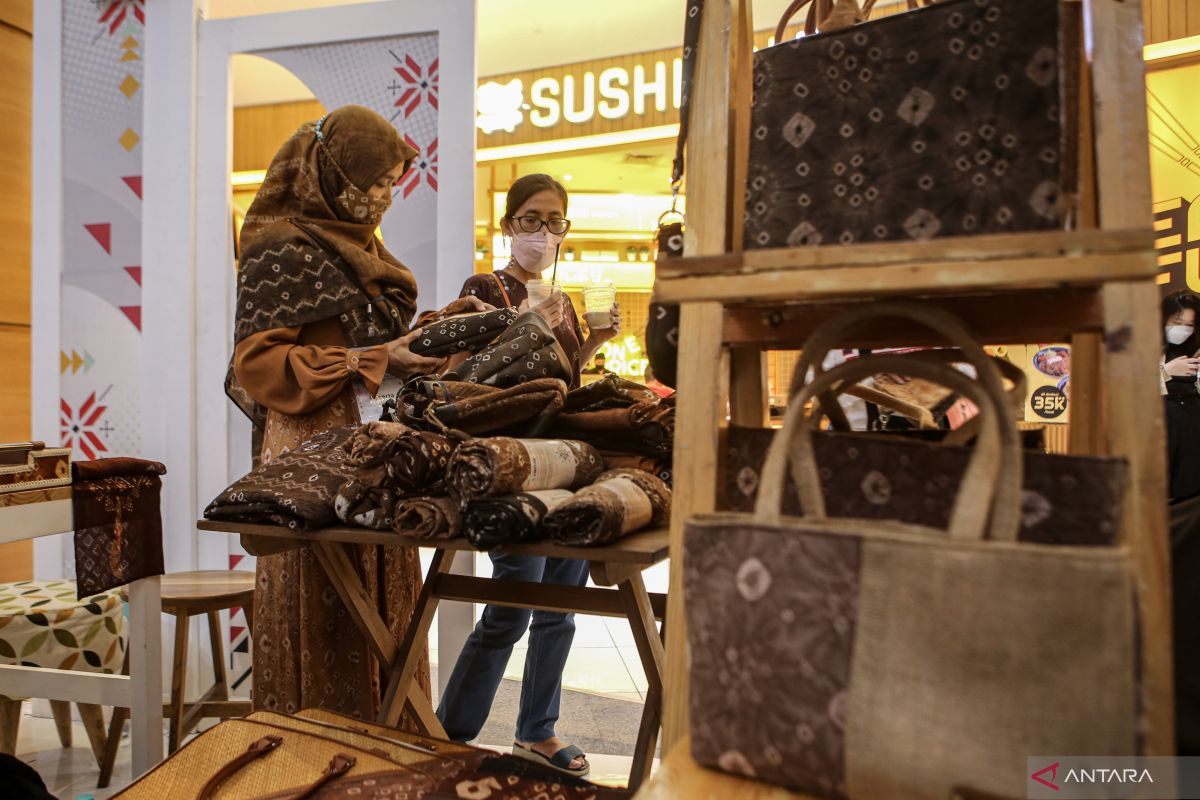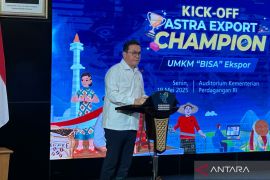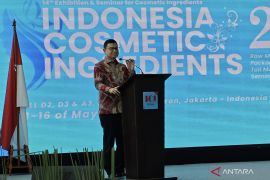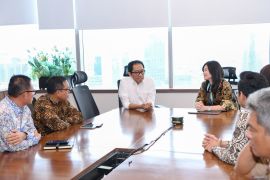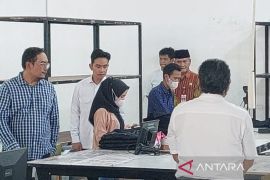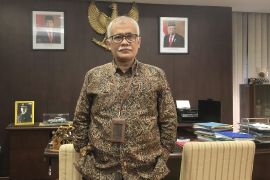President Joko Widodo (Jokowi) has also issued Presidential Decree Number 15 of 2021 regarding the “Proud of Indonesian Products National Movement” team to push national economic growth through the strengthening of micro, small, and medium enterprises (MSMEs), including small and medium industries (SMEs).
MSMEs are considered the national economic backbone due to their contribution to the gross domestic product (GDP), which has reached 61 percent, and their capability to absorb 97 percent of the workforce in the country.
As per data from the Ministry of Cooperatives and Small and Medium Enterprises (SMEs), the number of MSMEs in Indonesia reached 64.91 million in 2021. MSMEs also have a role in the country's economic development as they are able to integrate investment by 60.4 percent.
Their impact on the country's economy has encouraged the government to focus on improving MSMEs. The Presidential Decree issued on September 8, 2021, has also pushed for support in the form of data collection, training, access to capital, market expansion, campaign implementation, budgeting, and economic stimulus for MSME players.
In the two years of Gernas BBI’s implementation, including the assistance provided, as many as 21 million MSMEs have been connected to digital platforms.
The number has increased significantly from just 8 million MSMEs before the movement was launched. This achievement amid the COVID-19 pandemic has demonstrated that MSMEs are very adaptive to every development.
The achievement is also expected to support the government's target to encourage 30 million MSMEs to join digital platforms by 2023.
Related news: Gernas BBI medium to promote village products: minister
Pushing local product spending
The government is also urging ministries and agencies to allocate at least 40 percent of their goods and services procurement budget for the purchase of local products.
The policy is outlined in Presidential Instruction Number 2 of 2022 regarding the acceleration of domestic product and micro enterprise, small enterprise, and cooperative products’ use intensification to support the “Proud of the Indonesian Products National Movement” in government goods/services procurement.
Based on the calculations of Statistics Indonesia (BPS), if the government spends Rp400 trillion domestically, it will encourage economic growth of around 1.6 percent to 1.7 percent and create nearly 2 million jobs.
The measure could also create a demand for local products, strengthen supply by increasing the capacity for industrial development and new investment, as well as develop the government marketplace as the main market.
The obligation to purchase local products and MSME products is being carried out by the government through the e-catalog platform created by the Government Goods and Services Procurement Policy Agency (LKPP).
MSMEs can now enter the e-catalogue platform more easily since the stages that they need to undergo to showcase their products have been simplified from eight stages to two stages. Likewise, in regional e-catalogue platforms, the stages have been reduced from nine to two.
Furthermore, there is the Domestic Government Credit Card (KKP), which the government has launched to accelerate payments for expenditures that can be charged to the state budget (APBN), especially for the purchase of local products. That means payments can be received by MSMEs immediately.
As of October 5, 2022, the realization of local product spending has reached Rp487 trillion, surpassing the target set at the beginning of this year of Rp400 trillion.
Unfortunately, despite exceeding the initial target of Rp400 trillion, the achievement has only reached 50.9 percent of the total commitment for local product spending of Rp950.33 trillion.
The government is targeting that by the end of 2022, local product expenditure realization will touch 90 percent or more than Rp800 trillion.
Related news: E-catalogs of local products must be accessible to government: Jokowi
Import hurdle
According to the LKPP’s records, there are at least five hindrances being faced in efforts to increase spending on local products: the abundance of imported products in online marketplaces, limited number of products with domestic component level (TKDN) certificates, limited number and types of products in the catalogs, prices of local products, which are higher compared to imported products, and the quality of imported products, which is better than that of local products.
A number of strategies have been implemented to overcome these obstacles, namely increasing the availability of TKDN-certified products by increasing survey institutions for certification and increasing the availability of the number and types of local products through integration with the “Increasing the Use of Local Products (P3DN)” program information system.
In addition, LKPP has limited the number of imported products in the e-catalogue and e-marketplace with the freeze system and reduced the display of the products. Until August 2022, LKPP has frozen 13,600 imported products in the e-catalog because their local substitutes are available.
Furthermore, LKPP is implementing a price preference for local products. Lastly, the agency is collaborating with research institutions and industries in the country to enhance the quality of local products.
LKPP has opened vast opportunities in government goods and services procurement that small and medium enterprises, cooperatives, and local businesses can tap into so that their products can be purchased by the central and regional governments.
The enthusiasm to buy local products must continue to be promoted so that it does not merely remain a campaign and the fulfillment of an assignment, but actually helps MSMEs level up and reduces imports, which is expected to boost the country's economy.
Related news: Prioritize spending on local products, ministry tells gov'ts, people
Related news: Budgets sourced from people must not be spent on imports: Jokowi
Editor: Suharto
Copyright © ANTARA 2022
